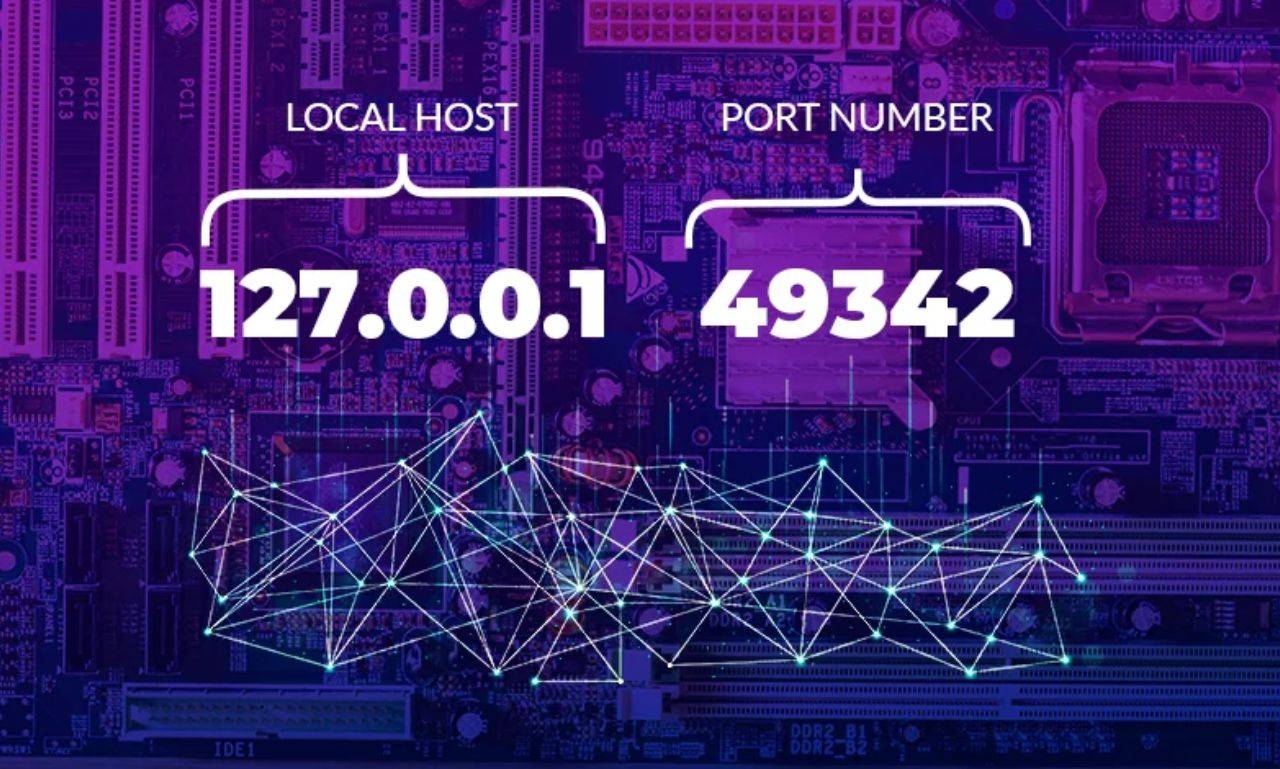Learn the essentials of 127.0.0.1:49342 in this comprehensive guide. Explore its significance in local development, testing, and network security best practices.
The idea of IP addresses is essential to understanding how the web functions. Among these, the 127.0.0.1 address, frequently alluded to as localhost, assumes a novel and basic part in systems administration. When joined with a port number like 49342, it means a quite certain occasion in systems administration that each designer, IT expert, and network safety master ought to comprehend.
In this aide, we will dig profound into the universe of localhost IP addresses, explicitly zeroing in on 127.0.0.1:49342. We will investigate its importance, importance, and commonsense applications, as well as address expected traps and security contemplations.
Understanding IP Locations
Prior to jumping into the particulars of 127.0.0.1, it’s fundamental to have a strong handle of what an IP address is. An IP address, or Web Convention address, is a remarkable series of numbers isolated by periods that recognizes every PC utilizing the Web Convention to convey over an organization. IP tends to come in two renditions: IPv4 and IPv6.
The previous, which is all the more generally utilized, is a 32-cycle number written in decimal as four numbers isolated by periods (e.g., 192.168.0.1). IPv6, then again, is a 128-cycle number written in hexadecimal and isolated by colons. Every IP address has two essential capabilities: distinguishing the host or organization interface and giving the area of the host in the organization. These addresses are critical for directing data between gadgets in various organizations.

What is 127.0.0.1?
The IP address 127.0.0.1 is fundamental for a saved block of addresses known as the loopback range. This reach is saved for the loopback interface, an exceptional, virtual organization interface utilized by a host to send messages to itself. While you ping 127.0.0.1 or access it in a program, you’re really speaking with your own PC. This address doesn’t interface you to the rest of the world yet rather gives an immediate line of correspondence inside your own framework. It’s a way for a PC to test its organizing capacity without including any outer organization.
Why 127.0.0.1?
The choice of 127.0.0.1 as the loopback address follows as far as possible back to the start of frameworks organization. In IPv4, the area range from 127.0.0.0 to 127.255.255.255 is put something aside for loopback purposes, yet 127.0.0.1 is the most routinely used considering the way that it is the essential area here. This loopback system is basic for testing and investigating network applications. Engineers can utilize 127.0.0.1 to reenact an organization association without expecting to interface with an outer server.
The Meaning of Port Numbers
An IP address alone isn’t sufficient to work with correspondence between gadgets or applications. The IP address recognizes the host, yet port numbers are utilized to distinguish explicit cycles or organization administrations on that host. A port number, as 49342 for our situation, is a 16-cycle number that can go from 0 to 65535. Each port number is related to a particular help or application.
127.0.0.1:49342 – A More Critical Look
Now that we’ve covered the essentials of IP locations and port numbers, we should zero in on the particular blend 127.0.0.1:49342. When you see 127.0.0.1:49342 in a log document, terminal, or program, it generally shows that a nearby help or application is running on your PC and is open through this loopback address and port number.
- Local Testing: Engineers frequently use localhost addresses like 127.0.0.1:49342 to test web applications, APIs, or different administrations locally prior to conveying them to a creation climate. This permits them to guarantee that everything is working accurately without expecting to open the application to the web.
- Network Security: The utilization of 127.0.0.1 guarantees that the assistance is just open from the neighborhood machine. This is a huge safety effort, as it keeps outside clients from getting to the help except if it’s purposefully presented to a public IP address.
- Application Debugging: While investigating network issues or application bugs, designers and IT experts frequently depend on localhost addresses to detach and determine issues. The particular port number can show which administration or application is being tried or repaired.
- Custom Port Selection: Port number 49342 might have been picked with no obvious end goal in mind by the application or allocated progressively by the working framework. Designers now and again select higher port numbers like this to stay away from clashes with notable ports utilized by different applications.
- Administration Availability: Accepting an application is running on 127.0.0.1:49342, it suggests that it’s only accessible on the close by machine. To get to the assistance from another machine, you would need to use the machine’s certified IP address rather than 127.0.0.1 and ensure that the right port is open in the firewall settings.

Pragmatic Applications
The utilization of 127.0.0.1:49342 is ordinary in a few situations, especially being developed conditions. The following are a couple of pragmatic models:
- Neighborhood Improvement Environments: Designers working on web applications frequently run them locally on 127.0.0.1 prior to pushing them to a live server. Apparatuses like Docker, XAMPP, and WAMP permit engineers to turn up neighborhood conditions that sudden spike in demand for loopback addresses.
- Programming interface Improvement and Testing: While making APIs, designers often use localhost addresses to test endpoints. Apparatuses like Mailman can send solicitations to 127.0.0.1:49342 to check that the Programming interface is working accurately.
- Information base Connections: Data sets like MySQL or PostgreSQL can be arranged to tune in on 127.0.0.1 for neighborhood associations. This arrangement is frequently utilized for neighborhood advancement and testing purposes.
- Containerization and Virtualization: In containerized or virtualized conditions, localhost addresses are utilized to permit correspondence between administrations running on a similar host. For instance, a Docker holder running a web server could uncover it on 127.0.0.1:49342 with the goal that different compartments or administrations on the host can get to it.
Security Contemplations
While utilizing 127.0.0.1:49342 is for the most part ok for neighborhood improvement, there are a few security contemplations to remember:
- Unapproved Access: Although localhost addresses are not open from outside the neighborhood machine, on the off chance that the application is misconfigured or on the other hand if the localhost restricting is changed to a public IP, it could open the support of the web, prompting potential security weaknesses.
- Port Scanning: Despite the fact that 127.0.0.1 isn’t remotely available, port examining instruments can in any case be utilized on the nearby machine to distinguish open ports like 49342. This could uncover superfluous administrations running locally, which may be taken advantage of by malware or other malignant programming.
- Firewall Configuration: Guaranteeing that your firewall settings are accurately designed is essential. While localhost addresses ought to be protected, it’s in every case great practice to close pointless ports and guarantee that no outer traffic can get to these neighborhood administrations.
- Secure Improvement Practices: While creating applications that utilization localhost, designers ought to follow secure coding practices to forestall weaknesses, like cradle spills over, SQL infusion, or cross-site prearranging (XSS), from being exploitable even in a nearby setting.
Investigating Normal Issues
While working with localhost addresses like 127.0.0.1:49342, a few normal issues can emerge. This is the way to investigate them:
- Port Conflicts: Assuming you experience a blunder expressing that the port 49342 is as of now being used, it implies that one more application is now bound to this port. You can either stop the other application or pick an alternate port number for your administration.
- Firewall Limitations: If you can’t get to an assistance running on 127.0.0.1:49342, it might be a result of firewall settings. Ensure that your firewall is intended to allow traffic on the predefined port.
- Application Binding: In the event that your application isn’t available through 127.0.0.1:49342, actually take a look at the application’s design to guarantee it’s accurately bound to 127.0.0.1 and the suitable port. A few applications could default to restricting to 0.0.0.0, which makes them open on all organization interfaces.
- Program Issues: While getting to 127.0.0.1:49342 by means of an internet browser, guarantee that you’re utilizing the right convention (http or https) and that no program expansions are obstructing the association.
Conclusion:
The 127.0.0.1:49342 localhost address fills in as a fundamental apparatus for engineers and IT experts, empowering protected and effective neighborhood testing and advancement. Its capacity to reproduce network conditions without presenting administrations to outside dangers highlights its significance in secure application improvement. Nevertheless, it’s essential to manage security settings mindfully to thwart potential shortcomings.
FAQ:
- Could external clients at any point get to an assistance running on 127.0.0.1:49342?
No, administrations running on 127.0.0.1 are just available from the nearby machine and can’t be gotten to by outer clients except if reconfigured.
- What would it be advisable for me I do if port 49342 is now in use?
If port 49342 is being used, you can either stop the clashing help or pick an other open port number for your application.




